- January 5, 2025
- Kate Semeniuk
- No Comments

I’m Kate, an RTT hypnotherapist, and today, we’re diving into an important discussion: the difference between traditional therapy and hypnosis or hypnotherapy.
You might have wondered, “What’s the difference?” Maybe you’ve even noticed the conflict between the two fields. Some psychologists don’t recommend hypnotherapy, while many hypnotherapists critique traditional therapy. Why is that?
Let’s unpack this together, because I believe everyone deserves to have a clear understanding of their options when it comes to mental health support.
A Brief History of Hypnotherapy
Let’s start with a bit of history—don’t worry, I’ll keep it short and sweet. Did you know hypnotherapy is one of the oldest forms of psychotherapy? Long before modern pharmacology came onto the scene, hypnotherapy was the go-to approach for treating mental health issues.
Everything changed after World War II. With the discovery of antibiotics, pharmacology exploded as a business, and soon after, antidepressants entered the picture. These “magic pills” promised relief without the need for other treatments. This convenience led to a decline in the use of hypnotherapy.
Many hypnotherapists found themselves out of work as people turned to medication and long-term counseling instead. It seemed easier to take a pill and attend weekly therapy sessions than to explore alternative methods. While medication certainly helps some people, it’s worth questioning whether it truly addresses the root of the problem.
In the 1950s and 60s, many hypnotherapists transitioned into stage hypnosis for entertainment, further discrediting hypnotherapy as a serious therapeutic method. Some reputable practitioners continued their work, but for most people, hypnotherapy became a last resort—if they even considered it at all.
A Shift Back to Hypnotherapy
Fast forward to the last 5–10 years, and we see a resurgence in hypnotherapy. Why? People are becoming frustrated with spending years in traditional therapy, often without resolving their core issues.
Let me be clear: I’m not here to criticize traditional therapy. Therapists and psychologists are incredible professionals dedicated to helping people heal. However, it’s important to recognize that the effectiveness of therapy often depends on how much time, energy, and patience you’re willing to invest.
For example, if you experience panic attacks, how long are you prepared to endure them? Would you rather spend five years in therapy or explore methods that might help you find relief within weeks? It’s a personal choice, but you deserve to know there are alternatives.
The Core Differences Between Traditional Therapy and Hypnotherapy
1. The Mind: Logic vs. Subconscious
Traditional therapy primarily engages the conscious mind—your logical, analytical thinking. During sessions, you discuss your feelings, explore past experiences, and learn coping strategies. Your therapist asks insightful questions like, “How does that make you feel?” or “When did this begin?”
While this process can be incredibly helpful, it often requires repeated sessions to create lasting change. For some people, years of therapy still don’t uncover the root cause of their struggles.
Hypnotherapy, on the other hand, works directly with the subconscious mind—the part responsible for 95% of your thoughts, emotions, habits, and behaviors. It’s the seat of your patterns, triggers, and even traumas. By bypassing the conscious mind, hypnotherapy allows you to access and reframe the deeper issues driving your struggles.
This process doesn’t mean you’re “out of control.” In fact, hypnosis is a highly focused and controlled state where you can explore your inner world with clarity.
2. Time Investment
One of the biggest differences between traditional therapy and hypnotherapy is the time it takes to see results.
In traditional therapy, addressing something like childhood trauma or chronic anxiety often requires years of sessions. For severe cases, medications are frequently prescribed as a supplement to therapy, which can help manage symptoms but doesn’t necessarily resolve the underlying issue.
Hypnotherapy, particularly RTT (Rapid Transformational Therapy), is designed to produce significant results in just 1–3 sessions. Whether you’re dealing with anxiety, fears, phobias, addictions, or limiting beliefs, hypnotherapy aims to identify and address the root cause quickly.
3. Getting to the Root Cause
In traditional therapy, it can take 10–20 sessions—or more—to uncover the root cause of an issue. This is especially true for complex cases where multiple layers of trauma or conditioning are involved.
In hypnotherapy, because we work directly with the subconscious mind, clients often identify the root cause in their very first session. Once the root is uncovered, we can reframe and resolve it, either in the same session or in subsequent ones.
4. Effectiveness in Reframing Beliefs
Reframing limiting beliefs is another area where hypnotherapy shines. Traditional therapy often requires additional sessions to help clients shift their perspectives and replace old beliefs with healthier ones.
In hypnotherapy, this process is integrated into the session. For example, if a client has a limiting belief stemming from a childhood experience, we not only uncover it but also work to reframe it in real time. This efficiency allows clients to experience profound shifts in a relatively short period.
5. Addressing Specific Issues
Certain issues—like addictions, weight loss, phobias, and panic attacks—tend to respond more effectively to hypnotherapy. While traditional therapy can be helpful for building confidence or improving relationships, hypnotherapy often provides quicker relief for deep-seated issues that significantly impact daily life.
For example, many people with panic attacks spend years in counseling, only to feel temporary relief before slipping back into old patterns. In contrast, hypnotherapy focuses on breaking the cycle by addressing the underlying cause.
Choosing the Right Approach for You
Ultimately, the choice between traditional therapy and hypnotherapy depends on your unique needs and goals. Both methods have their strengths and can complement each other beautifully.
If you’re looking for a deeper, faster approach to uncovering and resolving the root cause of your struggles, hypnotherapy might be worth exploring. However, it’s essential to work with a qualified professional—whether it’s a skilled psychologist or a trained hypnotherapist—who understands your needs and has your best interests at heart.
Final Thoughts
I hope this sheds some light on the differences between traditional therapy and hypnotherapy. Both have their place, and neither is inherently better than the other—it’s about finding what works for you. If you’d like to learn more about hypnotherapy or explore how it might help you on your healing journey, feel free to reach out. You can subscribe to my newsletter for more insights or book a call to discuss your needs.
Join my community on Instagram, Facebook, or TikTok for more tips and support.
Remember, healing is a journey, and you deserve to find the approach that feels right for you.
